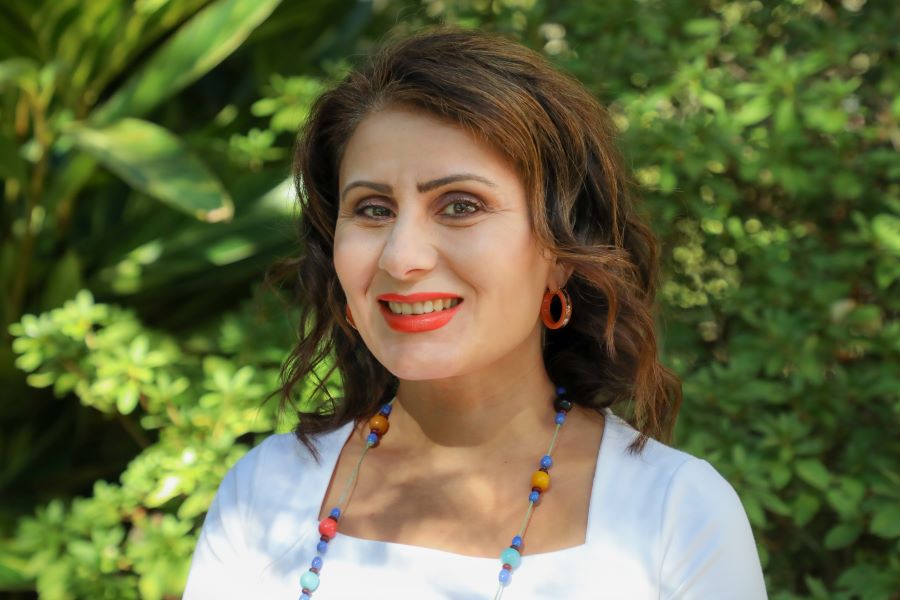Faculty Spotlight: Nilay Özok-Gündoğan

Nilay Özok-Gündoğan is an associate professor of Ottoman and Middle East history in Florida State University’s Department of History, part of the College of Arts and Sciences. Her research centers on modern state-making, property regimes, and intercommunal conflict in Ottoman Kurdistan. Her writing has appeared in many publications including the Journal of Social History, International Journal of Middle East Studies, Comparative Studies of South Asia, Africa and the Middle East and New Perspectives on Turkey. Özok-Gündoğan’s first book, The Kurdish Nobility in the Ottoman Empire Loyalty, Autonomy and Privilege, narrates the rise and fall of Kurdish nobility in the Ottoman Empire from the sixteenth through to the nineteenth century. Focusing on one noble Kurdish family based in the emirate of Palu, a fortressed town in Kurdistan, it provides the first systematic analysis of the Kurdish hereditary nobility.
Tell us a little about your background.
I came to FSU as an assistant professor of history in 2017. I received my bachelor’s in political science in 2002 and master’s in modern Turkish history from Boğaziçi University in Istanbul, Turkey, in 2004. I received my doctorate in history from Binghamton University in 2011.
Can you break down your areas of interest?
I am a historian of the Ottoman Empire and the modern Middle East. I specifically focus on the history of Kurds and Kurdistan. I examine how broad historical processes such as capitalism, colonialism, and modernization transformed Kurdistan and the lives within Kurdish society.
What do you want the public to know about your work? Why is your research important?
Kurds are the largest minority group in the Middle East without a state of their own. After the dissolution of the Ottoman Empire, Kurds became minorities in the new nation-states of Turkey, Iraq, Syria and Iran. These states were built on the supremacy ideology of the Turkish, Arab and Persian ethnic identities. As such, they deployed assimilationist cultural and language policies toward their Kurdish population and denied the existence of Kurds as a separate ethnic identity. Official historical accounts of these national states portrayed Kurds often through essentializing and racialized perspectives. My scholarship places Kurds and Kurdistan at the center of historical analysis since they have been largely invisible in the state-oriented and nationalistic histories of this region. With my historical research, I also aim to show the complex history of Kurds and challenge unidimensional and stereotypical historical narratives produced by Turkish, Arab, and Iranian ethno-centric official accounts.
Tell us about the courses you teach and how these fit in with your research goals.
At FSU, in addition to survey courses on the modern Middle East, the Islamic world and the Ottoman Empire, I offer advanced special topic seminars such as the ethno-religious conflicts and violence in the modern Middle East and the colonialism and imperialism in the Middle East classes. One undergraduate course that students particularly like is the Middle East history through graphic novels class. Using nontraditional sources, this course explores the experiences of diverse groups, including women, children, and ethno-religious minorities during critical episodes of Middle Eastern history.
In both my undergraduate and graduate courses, I encourage my students to consider the history of the Islamic world and the Middle East from a comparative or global perspective. Rather than seeing these places as isolated entities, my courses aim to highlight connections and interactions of these places with other parts of the world. My courses aim to demonstrate the complex historical origins of ethno-religious and sectarian conflicts in the contemporary Middle East and challenge the essentialist perspectives which portray these conflicts as products of ancient ethno-religious hatred.
Who are your role models? Who has influenced you most in your life and career?
My dissertation supervisor, the late professor Donald Quataert, who was a distinguished professor of history at Binghamton University, greatly influenced my scholarship. He emphasized the significance of studying ordinary people’s experiences and going beyond the state and elite-centered historical accounts of the Ottoman Empire.
I am also inspired by Yaşar Kemal’s writings, who is a Kurdish novelist from Turkey. His novels are fascinating tales of the injustices in rural societies and the peasants’ search for justice. He was the first novelist from Turkey to be nominated for a Nobel Prize. I often look to women activists, scholars, and authors from around the world, as they have been the greatest inspiration for me as a woman who writes within a traditionally male-centered field. For instance, the Pazartesi, which in English translates to ‘Monday,’ was a Turkish monthly journal published by women, for women when I was in high school. By reading this feminist publication, I understood the significance of finding your voice as a woman in society and as an author.
What is your favorite part of your job? What is the most challenging part of your job?
Working at the archives and reading original documents written several centuries ago is my favorite aspect of my job. Imagining how these documents were created, by whom, and in what circumstances is very fun. It is also the most challenging part of being a historian.
How do you like to spend your free time?
I love reading novels, taking long walks and crocheting. I recently developed an interest in astrology and its history. I have an eight-year-old daughter who is also a history geek, and I love going to museums and reading historical books with her.
If your students only learned one thing from you (of course, hopefully they learn much more than that) what would it be?
I would like them to think of history not as a reservoir of lessons to be learned for the future but as something to be inspired by. History is full of multiple possibilities, trajectories and imaginations. Where we are right now was never and never will be the only alternative.
